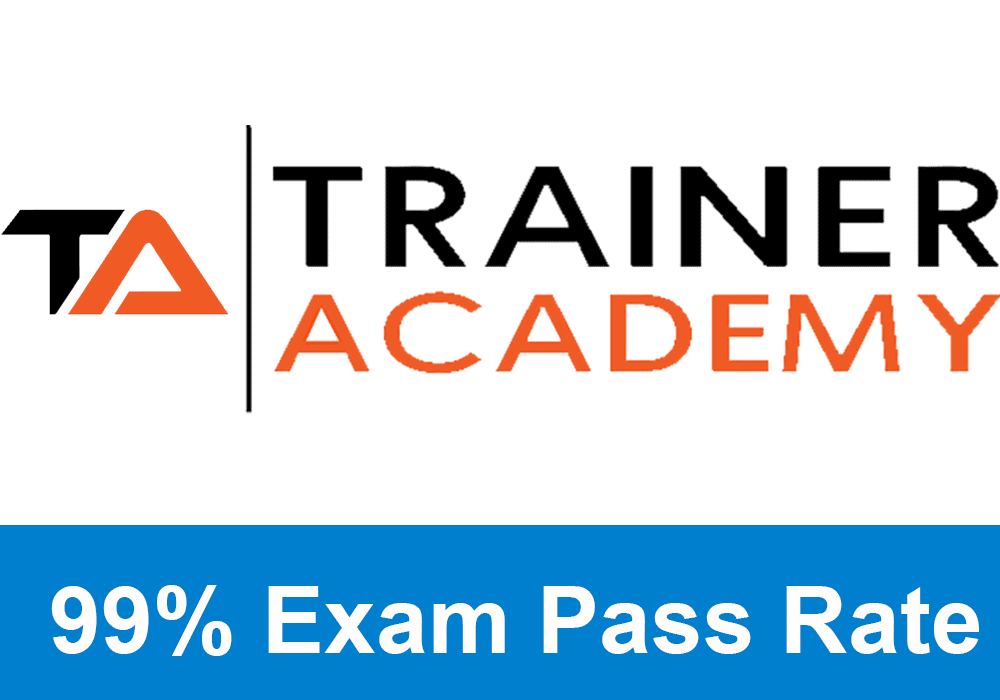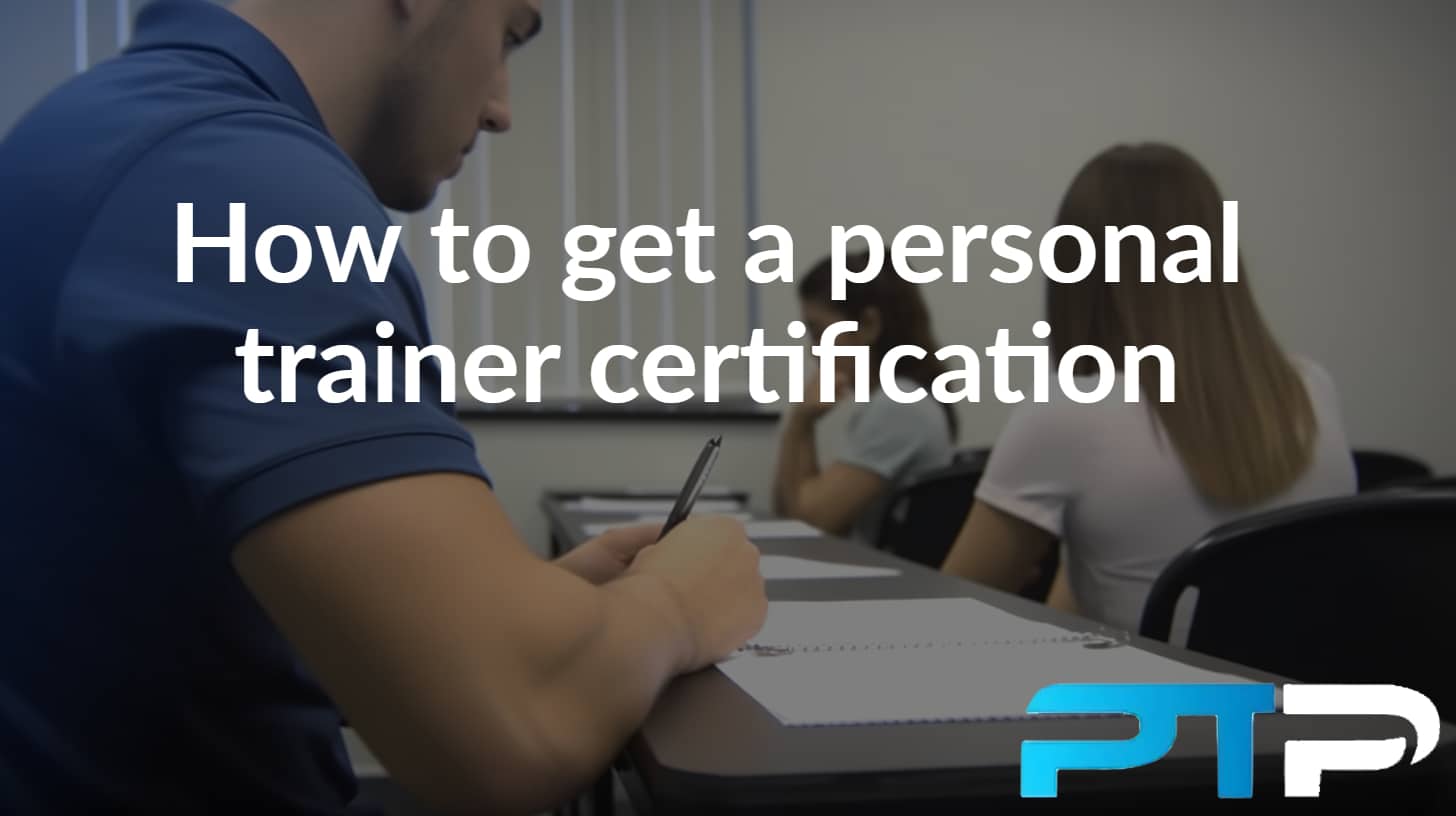In this chapter, I will show you how to put all you’ve learned about personal training into practice.
Let’s delve right into it!
Introduction
Congratulations!
You’ve passed your exam and now you are a certified personal trainer.
How awesome is that? It’s time to start your career in the fitness world, make your mark, and, more importantly, help people transform their lives.
But wait… you have the head knowledge, right?
But do you have practical experience?
No, you don’t because that’s not something any certification covers.
And while it’s all good and well to say you will learn as you go along, isn’t it better to put some time aside and learn the ropes before looking for your first job? I think it is.
In this section of the guide, I want to take you through a few practical things you should consider to help you get up to speed and start looking for your first placement in the fitness world.
This can give a head start over personal trainers just starting their careers.
Why?
Well, many jump straight in, start looking for a job and often take the first thing that comes their way.
And in most cases, those jobs aren’t the best out there.
Many gyms and other fitness institutions will put you to the test before they hire you.
Show them you know what you are doing and they will pick you over a competitor who hasn’t practiced their theoretical knowledge yet, that’s for sure.
So it’s time to put your newly acquired knowledge to good use.
And you do that by finding someone to train and practice on.
Practice makes perfect, but on who?
I know what you’re thinking.
You are wondering how to practice on people to gain some experience as a rookie personal trainer.
Well, it’s not that difficult.
And in this section, I will give you a few pointers on how to hone your personal training skills so that when you access your first paying customer, you will know exactly what you need to do.
Before I start, I want to make something clear.
Now I know that starting out will be hard on your nerves.
And being nervous is a good thing because it helps keep us on our toes.
The thing is, you can be nervous and you can still promote confidence.
That confidence, or lack thereof, will be picked up by whoever you train.
Now confidence is a strange thing. Some of us have it in bucket loads while others struggle.
Even if you have to fake it till you make it, try to be as confident as possible, even in your practice sessions as you work your way through helping someone.
But where’s the best place to start?
Who can be your first “client,” so to speak?
Well, here are a few ideas.
Keep it close. Start with family and friends.
Ok, well, the most obvious place to start when it comes to practicing as a personal trainer is with close friends and family.
In reality, this is a captive audience and perhaps the best way to ease yourself in.
Your family and friends won’t worry too much if you make a mistake either.
And it’s important to apply all the technical knowledge you have learned from your certification.
So once you have a volunteer, start as you would with any regular client.
Arrange to have an initial meeting with them where you conduct their first assessment.
Do this in a way that is professional and with purpose.
Exclusive PTP CPT Offers |
||
|---|---|---|
Gold Standard Cert | Most Popular Cert | Best Study Materials |
A Good Option | A Good Option | Best CPT for you?  |
Even though you know them, pretend that you don’t.
Do everything you learned during your studies.
That means:
- Completing a physical activity readiness questionnaire,
- Signing liability waivers,
- Discussing any health challenges, they might have
- Determining their goals
Don’t forget; you can also ask other critical questions that will give you all the information you need to draw up the correct training program for each individual.
Questions like these below are all great examples of ways to find out even more information a client forgot to give in their questionnaire, for example.
- Do you have a pre-existing health condition?
- What do you hope to get out of training at the gym over the short-term and long-term?
- Do they get enough sleep at night?
- What’s their food intake during a typical day?
- What’s their day job?
Make sure you download the relevant chapter resources: the Client Information, PAR-Q Form, Weight/Measurement Tracking Chart, and the Waiver & Release of Liability Form.
Designing their exercise program
Once you have all the forms filled in and all the other details you need, you’ve come to where you put all that knowledge you’ve gained from your certification into practice.
That’s because it’s time to design a specific training program for each member of your family or friends you are testing your skills on.
Now that can be a little daunting, but you would have done so during your certification and it’s ok to make mistakes, so don’t let that put you off.
If you are struggling, however, and need some guidance, this is an excellent resource for sample exercise programs covering a range of fitness goals.
Assignment
Once you have all the necessary information, it’s time to complete the workout assessment.
Again, that’s going to cover everything you were taught during your studies, such as:
- All measurements, including their body fat percentage
- A test of their fitness level through a quick cardiovascular workout like a mile walk or a step-test.
- Flexibility measurements
- Strength assessment
But you know all this, right?
Sure you do; follow through all the way and conduct all your tests as if your friend or family member was a paying client.
Once you have completed this initial assessment, ask for feedback on how they felt it went, areas you can improve, and anything else they may have liked or disliked.
Then go and draw up an actual workout program for them!
Do this with a few friends or family members to help yourself get into a groove and fine-tune the process.
But what about actual exercise?
Taking a client through the exercise program that you have drawn up for them is also a critical part of learning as a personal trainer.
You’ve only done it in theory before this point.
So how can you get experience with this aspect of personal training? Well, other than taking one of your family or friends to the gym to practice, there is an even easier way.
And that’s to practice on yourself.
So, approach it from a completely different angle instead of going through your normal workout.
Imagine that you are the client and use the phrases you will say, the triggers you should focus on, and teach the correct form for each exercise.
Initially, it might be a little strange, but it is an easy way to hone your skills, particularly in giving the correct instructions for each exercise.
If you use someone you know, don’t forget to get them to fill in a client feedback form.
It’s the perfect way for them to be honest and show you areas where you have excelled or where you can improve.
This isn’t always easy for someone to do face-to-face because they don’t want to let you down and might not want to give you constructive criticism one-on-one.
A form or questionnaire makes it a little easier in this regard, especially when you tell them that their honesty can help you improve as a personal trainer.
Client Feedback Form for family members/friends: In the chapter resources, you will find a link to the Client Feedback Form you can use.
Assignment – Training Self Reflection
You must handle working with a friend or family member as a mock client, so take it pretty seriously.
You can learn a lot from an exercise such as this and it is invaluable as a tool before you land your first job and take on paying clients.
Remember, for the most part, new personal trainers will probably start working in a large commercial gym.
And it’s a good place to learn the ropes, especially as clients are often sent your way.
But you want to make sure you are prepared. While you have the theoretical knowledge, thanks to your certification, getting the practical knowledge and putting all that theory in place can be a little daunting.
That’s why honing your skills beforehand is a good idea.
So onto this assignment, then.
There are no right and wrong answers here. I want you to take the time for a little self-reflection.
In particular, you need to reflect on your training sessions with friends and family and digest how they went, how you performed, and how you can improve.
To do that, you need to set aside 30 minutes and answer a few questions, which you will find in the resources for this course, in the form of an assignment handout called Assignment: Training Self Reflection.
Don’t just gloss over this.
Exclusive PTP CPT Offers |
||
|---|---|---|
Gold Standard Cert | Most Popular Cert | Best Study Materials |
A Good Option | A Good Option | Best CPT for you?  |
Self-assessment is the perfect way to reflect on things.
You will know where things went well and where you can improve, so by doing this assignment, you can identify the areas you need to work on to become a better personal trainer.
And the best thing is it’s not something you identify in a working situation in real life.
In fact, you are bettering yourself even before you land your first job. Now that’s forward-thinking.
Other ways to learn the ropes
So after practicing your new-found skills with friends and family members, what other ways can you learn the ropes and get some much-needed experience? Here are a few ideas for you.
Mentoring and job shadowing
After you have taken the time to practice and hone your skills with a family member, it’s time to try to find a mentor and do a little job shadowing.
You could even job shadow someone before you have passed your certification.
It’s a great way to get practical experience and knowledge and make yourself known at the local gym.
If you can set up an opportunity like this, you really can learn so much.
It’s invaluable.
But where do you start?
How can you find the perfect mentor?
Start by getting involved at your local gym by offering to volunteer.
Explain to the owner that you are a certified personal trainer but that you feel the need to gain some experience.
And while you might not get the chance to work with a client by yourself, you can ask if you could job shadow one of the personal trainers to see how they go about their daily activities.
From there, build up a relationship with them and ask if they could be your mentor.
You can learn so much working with an excellent personal trainer.
If it’s a gig that you can land, you are setting yourself up nicely.
Some gyms even offer mentorship programs, so take the time to look around even if you don’t hit the jackpot immediately.
If you don’t find a job shadow or mentorship immediately, don’t give up trying.
Someone will help you out at some point.
And as you gain even more experience, it’s time to expand and work with even more people.
Volunteering
Even if you’ve not managed to find a decent opportunity to job shadow, there is a way that you can work with a variety of different people to improve your skills even more – volunteer in your community.
Here are a few places you could try.
Recreation Centres
The most obvious places to start are at the local recreation center, particularly those with a workout area or a YMCA.
Sports events
While you are unlikely to conduct a client assessment at the local fun run, it’s a great place for you to offer your services.
For example, helping runners warm-up correctly before they hit the road.
But it’s more than that because you are effectively getting your name out there and networking.
We will cover that in far more detail later in the course.
Corporate health and wellness days
Contact the big corporations in your area and find out when they have their health and wellness days planned.
It’s something that all of them will run at least once yearly.
This is a brilliant opportunity to meet with a whole range of people and interact with them.
Perhaps you can offer a short fitness assessment or hold a quick exercise class showing the correct exercise form.
You could even hold posture assessments, perfect for office workers.
There are many ways you can handle this, but again, not only does it mean you meet and greet and deal with the public, but it can also be a networking opportunity.
Networking is important to get your name out there, especially when you are just starting out.
Even if you struggle to find people to train and practice your skills on, continue to find ways to network, meet more people, and ultimately, you could open doors for yourself down the line.
Local faith-based organizations
Why don’t you approach your local faith-based organizations and offer to hold fitness classes once a week?
Again, this a great opportunity to work with people of varying ages, improve your interpersonal skills, and help them with various exercises.
Remember to keep things simple, particularly if working with senior citizens.
Conclusion and assignments
Head knowledge is one thing, but if you want to succeed when starting out as a personal trainer, getting in some practice working with clients, carrying out health and fitness assessments, and then drawing up a unique fitness program for them is a must.
However, I am sure some of the ideas we have reviewed can help you get the necessary experience.
And when that first client books their first appointment with you, you can confidently guide them through it.
Of course, while gaining experience at community organizations, corporates, sporting events, or even just using your friends and family to learn, mentorship or a period of job shadowing should be your ultimate goal.
Don’t forget to take the chapter takeaway quiz to make sure you have a good grasp of everything covered here.
Assignment: Reaching Out And Being Persistent
Before we get into the next chapter, which is all about landing that first job, I think it’s a good exercise to try to look for ways to build your experience.
And while we have covered devising running an assessment and then devising a personal training program for family and friends, there are many other ways that you can do this, as I explained in the chapter.
For this assignment, I want to focus on something else that you can do.
And that’s contacting a local gym, recreation center, or any other organization where you could offer your services as a volunteer and gain experience at the same time.
Don’t worry, I will guide you through the process and hopefully, you can find somewhere to help and learn simultaneously.
It’s something to put on your resume, which is good for young personal trainers with little experience.
So what’s first?
- List your area’s local gyms, recreation centers, senior villages, holiday resorts, and sports centers.
- Once you have identified this list, you need to do some detective work and identify the relevant contact people you can approach to ask them if you can volunteer your services. For example, in the case of the local gym, you are going to need to approach the gym manager. For a recreation center, it will be the person who runs it overall.
- These contact details should ideally include both phone numbers and email addresses. This is probably not going to be something you can achieve overnight but doesn’t worry; take your time and build your list.
- Once you have these details, attempt to contact each organization you have identified to offer your services. In the course resources for this chapter, you can find an example of the email you can send as an initial contact and a follow-up email. The file is called Contact Emailer for Volunteering.
- Also, in the course resources for this chapter, you will find a contact form where you can record all the details of the gyms you have contacted, along with the relevant contacts’ phone numbers or email addresses. The file is called Contact List.
All of the resources you need are in the download section below.
Downloads
Course Resources – Chapter 3 – Assignment Training Self Reflection
Course Resources – Chapter 3 – Client Feedback Sheet
Course Resources – Chapter 3 – Client Information Questionnaire
Course Resources – Chapter 3 – Contact Emailer for Volunteering
Course Resources – Chapter 3 – Contact List
Course Resources – Chapter 3 – Email Examples
Course Resources – Chapter 3 – Waiver & Release Of Liability
Course Resources – Chapter 3 – Weight & Measurement Tracking Chart
Course Resources – Chapter 3 – PARQ Form

 Have a question?
Have a question? 
![Wellness Coach vs Health Coach Career Comparison in [year] 5 health vs wellness coach - a side by side image of a health coach and wellness coach showcasing the differences between each profession](https://www.ptpioneer.com/wp-content/uploads/2024/02/Health-Coach-vs-Wellness-Coach.png)
![Life Coach vs Wellness Coach [year] Career Comparison 6 health vs wellness coach - a side by side image of a health coach and wellness coach showcasing the differences between each profession](https://www.ptpioneer.com/wp-content/uploads/2024/02/wellness-coach-vs-life-coach.png)
![What Is a CPT Certification? + Other CPT Questions [year] 7 What Is a CPT Certification? + Other CPT Questions [year] 1](https://www.ptpioneer.com/wp-content/uploads/2023/09/what-is-a-cpt-certification.jpg)


![Yoga Instructor Career - [year] Salary, Prospects & More 10 Yoga Instructor Career](https://www.ptpioneer.com/wp-content/uploads/2021/08/Yoga-Instructor-Career.jpg)

Tyler Read
PTPioneer Editorial Integrity
All content published on PTPioneer is checked and reviewed extensively by our staff of experienced personal trainers, nutrition coaches, and other Fitness Experts. This is to make sure that the content you are reading is fact-checked for accuracy, contains up-to-date information, and is relevant. We only add trustworthy citations that you can find at the bottom of each article. You can read more about our editorial integrity here.